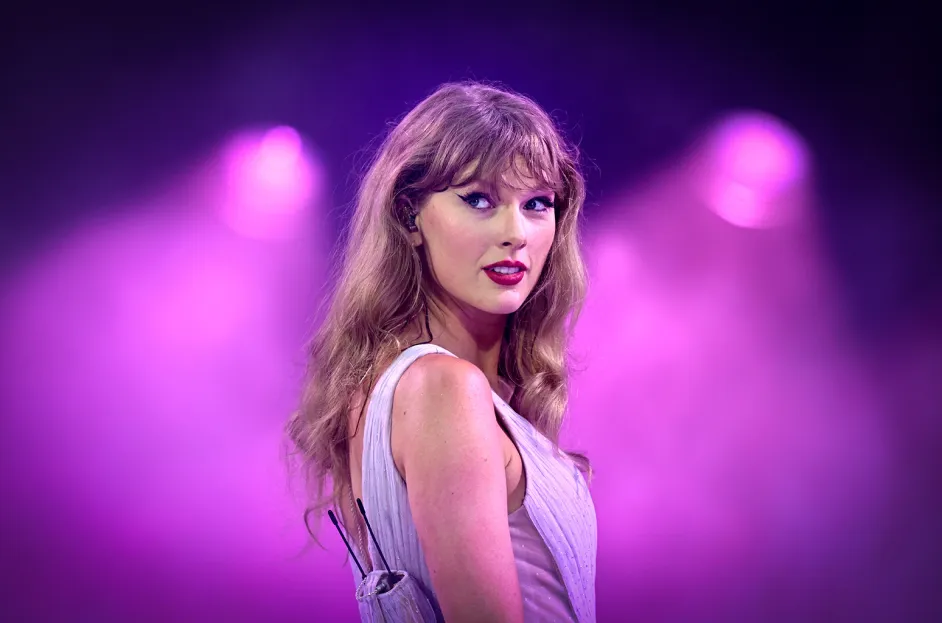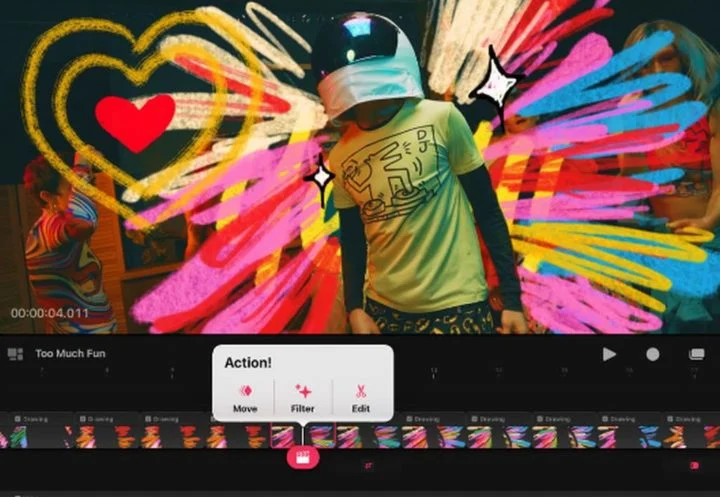Trump’s recent memes on Truth Social suggest Taylor Swift supports his candidacy, but new laws could impact the legality of using AI-generated images in political campaigns that misrepresent celebrities
“One of the trends I am currently observing in my practice is the proliferation of AI impersonators for endorsements across the board”, Noah Downs, an IP and entertainment lawyer, stated in an interview with TechCrunch.
He clarified that his comments are not legal advice. These fraudulent AI endorsements have become so widespread that “Shark Tank” was”compelled “to issue a public service announcement to inform viewers of scams that impersonate the show’s investors.
In one of the images that Trump shared, many young women are depicted wearing identical “Swifties for Trump” t-shirts. These images, derived from a satirical post on X, appear AI-generated despite political diversity among the large population of Swift admirers.
Another meme that Trump shared is a screenshot from X that shows Taylor Swift as Uncle Sam, with the message, “Taylor wants you to vote “or Donald Trump.”

In 2020, the pop icon “publicly disparaged Trump and expressed her support for the Biden-Harris campaign despite having not yet commented on the 2024 U.S. presidential election.
Although some admirers suspected Swift had indirectly endorsed Harris in an Instagram post earlier this month, this was untrue.
Swift, one of the most influential figures in contemporary culture, has been the target of numerous deepfakes.
In response to the virality of non-consensual, explicit AI images of Swift on X this year, certain legislators introduced new bills to safeguard against deepfakes. Karine Jean-Pierre, the White House Press Secretary, also urged Congress to take action.

The legal landscape of protections against misleading synthetic media has already transformed eight months later.
In March, Governor Bill Lee signed the groundbreaking ELVIS Act into law in Tennessee, where Swift’s corporate representation is located. Swift’s legislation provides artists with explicit safeguards against unauthorised AI imitations of their work.
“This legislation was passed with bipartisan “support, as it appears that everyone acknowledges the issues that AI and the misuse of AI tools can pose to the public,” Downs stated.
However, due to its recent en”ctment, there is no precedent for using the ELVIS Act to safeguard artists. The legislation’s language primarily focuses on Alegislation’s studio, which can imitate an artist’s vocals, such as the viral Drake song artists’ ultimately discovered to be fake.
“I believe that the ELVIS Act is very precise”t in addressing this long-term issue; however, we require more robust national legislation,” Downs stated. Swift’s business and real est” the holdings in Swift’ste are the sole reason the ELVIS Act may be potentially relevant.
Avi D. Kelin, a partner at PEM Law who specialises in political law, is sceptical that the ELVIS Act could be applicable, as the law appears to be more concerned with audio-based impersonation than imagery.
Instead, he contemplates whether this could potentially evolve into a federal election integrity issue in the future.
Kelin told TechCrunch, “The more significant inquiry is whether the “federal Election Commission, which has jurisdiction over political communications, will become involved.”
However, he stated that it is unlikely that” the Federal Election Commission (FEC) will implement new regulations regarding AI-generated political communications during this election cycle.
However, the Federal Communications Commission (FCC) has announced that it is proceeding with its plans to implement new AI transparency requirements for television and radio advertisements.
However, this does not apply to social media posts by politicians vying for government office, and social media continues to be a critical aspect of campaign communications.
In the interim, research conducted by the Centre for Countering Digital Hate (CCDH), a British nonprofit organisation specialising in online extremism, demonstrated that the volume of AI-generated disinformation on X has increased by an average of 130% per month over the past year.
The significance of these disingenuous endorsements is that Swift’s endorsement is potentially the most soughtSwift’scelebrity endorsement a politician can receive.
Taylor Swift’s cultural influence is so extensive that Swift’s statement of a candidate could sway the balance in a close race.
Morning Consult reports that over 50% of adults in the United States are fans of Taylor Swift, with 16% identifying as avid fans. The figures are astonishing because only approximately two-thirds of eligible Americans participated in the 2020 election.
Kelin stated, “The [ELVIS Act] is a novel concept, and the courts will be responsible for “establishing the precise parameters.” “This would undoubtedly be an intriguing test case!”



